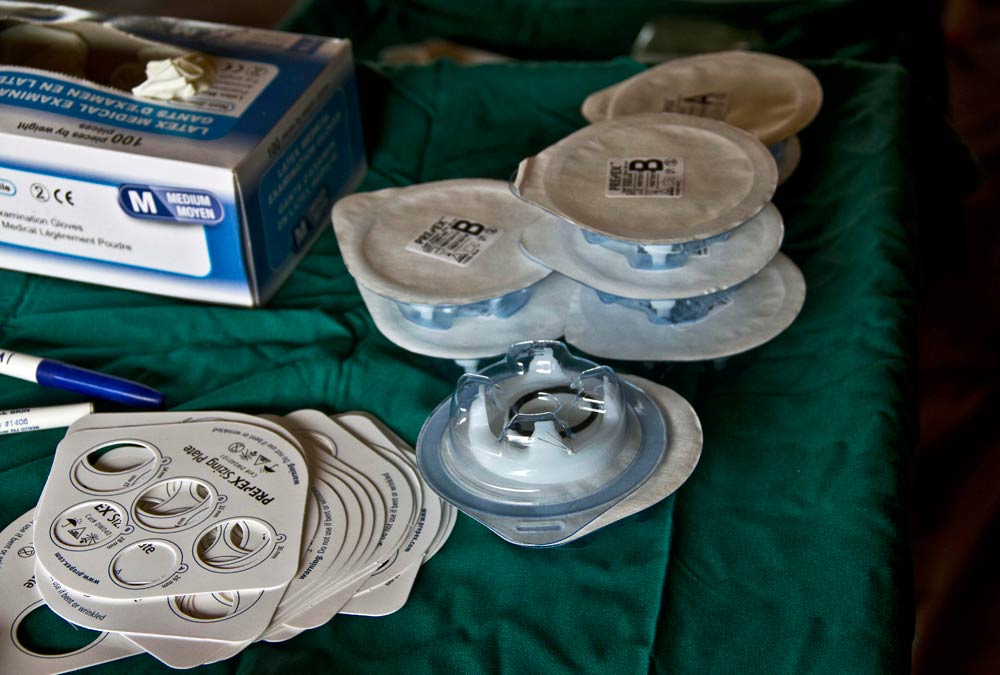In my village in the Eastern Cape Province of South Africa, a male who has not undergone circumcision is called ‘inkwenkwe’ – a boy.
A young man who has undergone this rite of passage takes great pride in it. If he has not, he is not considered an adult, and will not be respected by men and women alike. He won’t be able to sit with the village men during ceremonial functions or important discussions. He’ll be shunned and told that his foreskin smells. Women who date him will also be looked down upon for dating an ‘inkwenkwe’.
As a young girl growing up in Mbizana, Eastern Pondoland, every year I looked forward to the celebrations at the end of each circumcision season. I had thought this was the way things had always been done here among my Pondo people, but in his book Faku: Rulership and Colonialism in the Mpondo Kingdom, Timothy J Stapleton writes: “Sometime in the mid-1820s, Faku prohibited circumcision, which was the customary initiation for young men in Xhosa-speaking societies… Oral informants in the early twentieth century stated that circumcision frequently made the initiates ill, probably through infection.”
The reason our King prohibited circumcision in the early 19th century is increasingly evident; over 180 boys have been admitted to hospital and 35 have died so far since the initiation season started this year alone, many due to botched procedures.
As the mother of an 11-year-old boy and responsible for his health, I have to question: is this practice justifiable in the 21st century? In a society that shuns those who are not circumcised, does my son really have a choice about keeping his penis intact or will he just have to submit to having part of himself amputated because ‘it is the way things are done here’.
We celebrate our cultural practices, yet we silently bury the dead, and the victims who live continue to suffer at the hands of the men who cut them.

As a mother with a duty to protect my son, I find I can no longer celebrate this customary rite of passage. I am now faced with the daunting task of speaking to my family about this. As mothers, we are told to stay out of it because this is a sacred rite of passage that boys must go through. Do I have a right to say no when it comes to my child?
The entire subject is deeply taboo. We passively accept that scores of young men in our country will inevitably die each year after being circumcised and that many more will be permanently maimed. Many young men end up losing the one thing they ‘go to the mountains’ to attain: their manhood.
It is not only the surgical side of the tradition that is cause for concern. Boys in my village go through initiation to get a pass to drink alcohol in front of and with the elders. Often we have seen these boys change from polite and well-behaved into abusive, violent, drunken young men. My cousin came back from initiation severely beaten, and a friend so badly beaten that he couldn’t walk for months. A neighbour’s son came back permanently mentally disturbed by what he had experienced.
I am angry at the complacency of our men and the silence of our women in the face of this horror. So many young mothers are appalled by the prospect of their sons being circumcised, yet tell me they feel powerless to stop it.
It is recognised that some deeply entrenched harmful cultural practices need ending with legislation. In some areas of the Eastern Cape and KwaZulu-Natal, for instance, young girls were legally abducted and raped in a traditional marriage practice called ukuthwala. Today it is illegal.
Likewise, female genital mutilation is now outlawed in eighteen countries, including South Africa. An estimated 100–140 million women worldwide have suffered FGM, and about three million girls and women continue to be mutilated every year. As awareness spreads and opposition grows, however, attitudes are changing. A spotlight is being directed on the shame and secrecy surrounding FGM, and more and more people are starting to appreciate that there is no developmental, religious or health reason to mutilate any girl or woman.
We must appreciate that cultures evolve, and we must leave harmful practices behind. Can we really say that if we decided to stop the circumcision of our boys we would lose our essential sense of identity as black South Africans? If we have banned the genital butchery of girls, why do we allow it for boys?
Fezisa Mdibi is a freelance journalist and poet. Follow her on Twitter: @fezisa. This post was first published on the Guardian Africa Network.


